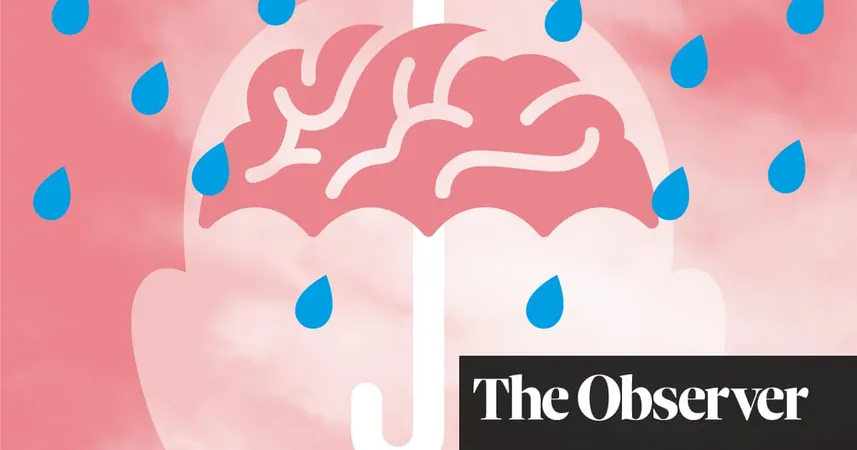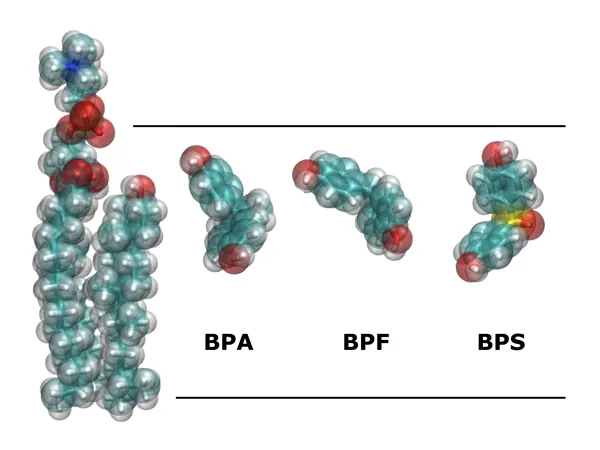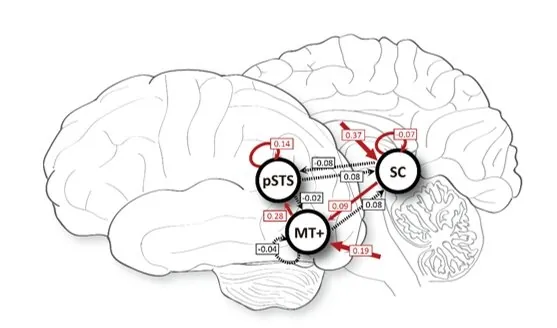
Why Resilience Training is Crucial: Early Intervention Could Change Lives!
2024-11-24
Author: Emily
Mental health struggles are a common experience that often begin early in life. Reflecting on my own journey, I was first struck by depression at the tender age of 16, but did not seek help until I was 29. For years, I believed I could navigate my low moods alone, yet the overwhelming waves of hopelessness only intensified. Fortunately, I found relief through cognitive behavioral therapy (CBT), but I can't help but wonder how much suffering I could have avoided if I had the tools to manage my mental health at a younger age.
In an era where mental health issues are on the rise, the concept of fostering resilience in young people has never been more pertinent. Jessica Schleider from Northwestern University emphasizes the need for preventative measures, stating, "The opportunity to intervene when problems are first emerging could circumvent so many challenges down the line." The World Health Organization echoes this sentiment, noting that one-third of mental health conditions manifest before age 14, and half before age 18. Thus, early action is not just beneficial, but essential for helping children reach their full potential.
One promising avenue in this field is mindfulness training, which encourages individuals to maintain non-judgmental awareness of their thoughts and feelings. This approach has culminated in the development of Mindfulness-Based Cognitive Therapy (MBCT), a course proven to alleviate symptoms for those already battling depression. Its implications for students are particularly compelling; researchers led by Dr. Julieta Galante at the University of Cambridge found that a modified mindfulness program significantly helped students handle exam-related stress, keeping their distress levels in check during crucial periods.
However, not all studies have yielded the same positive outcomes. The My Resilience in Adolescence (Myriad) trial, which involved numerous schools and a large student population, reported no significant differences in mental health between students receiving mindfulness training and those who enjoyed standard PSHE lessons. Dr. Galante speculated that the lack of engagement from students subjected to compulsory training may account for these unexpected results. The stark contrast in participant recruitment strategies suggests that voluntary engagement in mental health programs could lead to far better outcomes.
Moving forward, a more effective approach might be the implementation of a diverse array of resources that cater to varying needs. Research indicates that resilience interventions can significantly boost wellbeing, especially for those already at moderate to high risk of mental illness. Jenny JW Liu, an adjunct research professor at Western University, highlighted the effectiveness of these interventions, stating, "Resilience interventions do work for lots of people."
Notably, resilience training often shares similarities with traditional therapeutic methods like CBT. This overlap highlights the blurred lines between prevention and treatment, as both seek to empower individuals with essential coping skills. For example, self-compassion training encourages individuals to treat themselves kindly, transforming self-critical thoughts into a supportive inner dialogue. Such strategies are particularly vital for adolescents and young adults, as studies show that self-kindness can significantly reduce the likelihood of developing anxiety and depression.
In the realm of behavior change, methods like behavioral activation help break the cycle of mental distress. By scheduling enjoyable and fulfilling activities, individuals can create positive feedback loops that enhance their mood and overall mental health.
Beyond traditional in-person resources, innovative online platforms like Project Yes offer a convenient way for youths to learn vital skills like self-compassion, mindset, and behavior change remotely. During the COVID-19 pandemic, researchers discovered that adolescents participating in Project Yes reported lower levels of depressive symptoms and disordered eating just three months after engaging with the program.
While there's great potential in these resilience interventions, it's crucial to consider the many external factors influencing an individual’s ability to cope, including family dynamics and socioeconomic conditions. Liu stresses the importance of recognizing that resilience isn't solely an individual journey, but also entwined with the resources available and broader systemic issues.
As we strive to equip the next generation with the tools for mental wellbeing, we must advocate for more accessible and varied resilience training. By doing so, we can create a framework where young people are prepared to face life's challenges head-on—much like a shield to guard against the mental struggles that plague many.
In the UK, immediate support is available through organizations like Mind (0300 123 3393) or Childline (0800 1111). In the US, reach out to Mental Health America at 988 or via chat at 988lifeline.org. Australians can contact Beyond Blue at 1300 22 4636 or Lifeline at 13 11 14 to get the help they need. Don't hesitate—reach out for support and start your journey to resilience today!









 Brasil (PT)
Brasil (PT)
 Canada (EN)
Canada (EN)
 Chile (ES)
Chile (ES)
 España (ES)
España (ES)
 France (FR)
France (FR)
 Hong Kong (EN)
Hong Kong (EN)
 Italia (IT)
Italia (IT)
 日本 (JA)
日本 (JA)
 Magyarország (HU)
Magyarország (HU)
 Norge (NO)
Norge (NO)
 Polska (PL)
Polska (PL)
 Schweiz (DE)
Schweiz (DE)
 Singapore (EN)
Singapore (EN)
 Sverige (SV)
Sverige (SV)
 Suomi (FI)
Suomi (FI)
 Türkiye (TR)
Türkiye (TR)